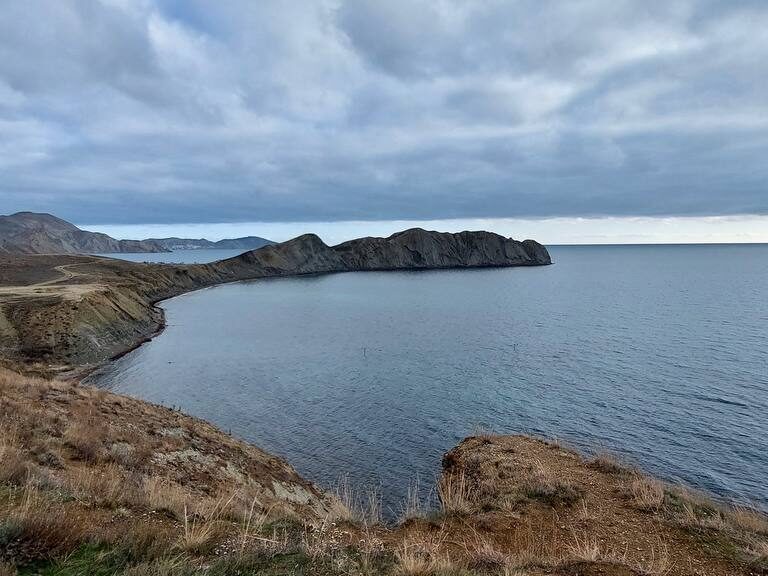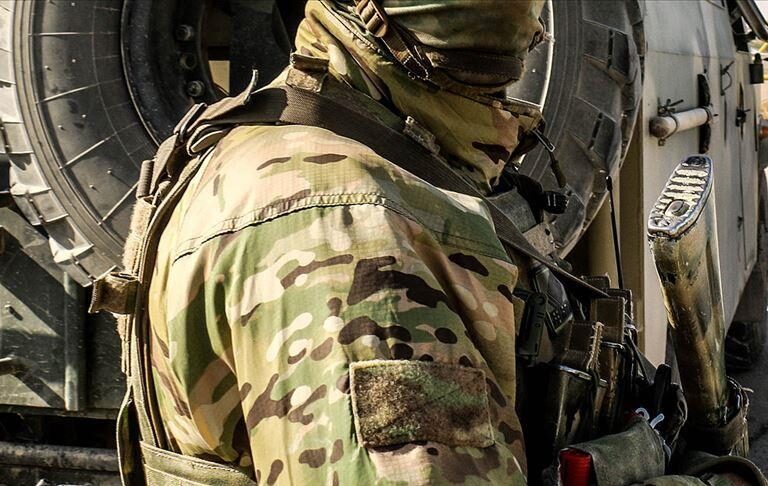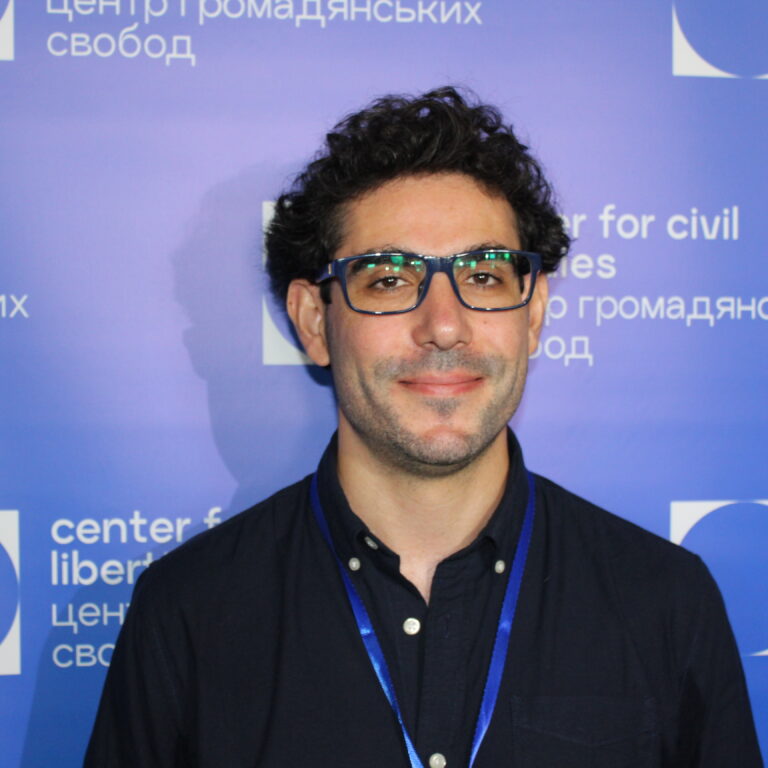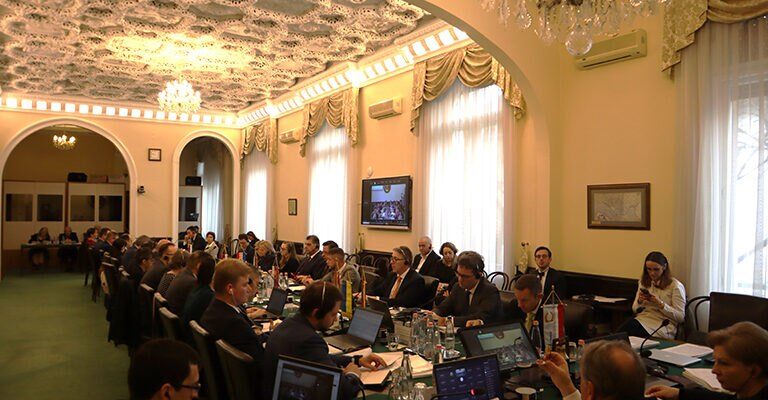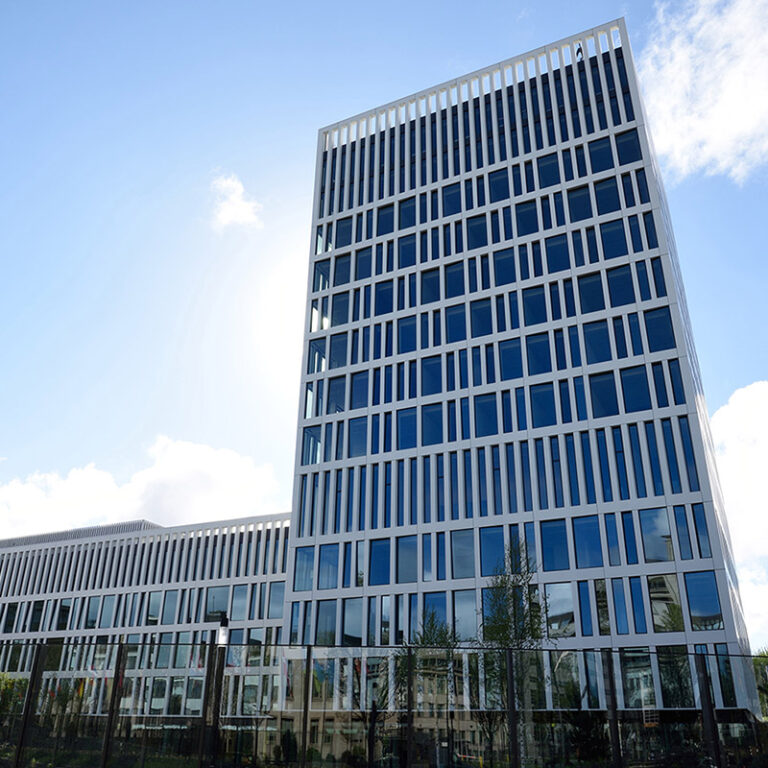French Foreign Minister Catherine Colonna said that she hopes for a quick ratification of the applications of Sweden and Finland to join NATO. She said this at a briefing during a visit to Vilnius, AP reported.
Commenting on the upcoming NATO summit in the Lithuanian capital in July, Colonna said she hoped that “this summit will be successful and that 32 countries will attend the summit in Vilnius.
Thirty nations are now members of NATO, and with the accession of Finland and Sweden, there will be 32. “The applications of Sweden and Finland should be ratified quickly,” Colonna said at the press conference. Recall that Sweden and Finland applied to join NATO in May 2022. The Alliance requires unanimous approval from its members to accept the new countries.
The convoy was in Vilnius to meet with Lithuanian counterpart Gabrielius Landsbergis to discuss the upcoming NATO summit July 11-12. It is also scheduled to meet with Lithuanian Prime Minister Ingrida Shimonite and visit French troops currently stationed in the Baltic country as part of a NATO air policing mission.
But what served to consolidate and what factors hardened the Alliance? Let’s get to the bottom of it.
Since the beginning of 2023, the aggressor has carried out a series of provocations across Europe aimed at inciting religious discord among Muslims and Christians, implementing the sad experience of harassment and repression in occupied Crimea.
Moscow’s actions were a kind of response from Moscow and Tehran to Europe, following key decisions of the world community to establish a tribunal against putin and the verdicts of international institutions regarding punishing Russia for its war against Ukraine and recognizing Russia as a terrorist state. The ICC’s decision and the arrest warrant for putin have only reinforced these sentiments.
The fact is that despite the Kremlin’s propaganda claims, putin is not in a position to declare war on NATO, but as a former member of the security services has made a desperate attempt to stir up a internecine war between Muslims and Christians, and launch destabilizing processes within the EU and NATO.
In conducting its operation, Moscow wanted to use the religious factor to consolidate its own efforts on the front, including using the “ROC” factor on one side, on the other, it tried to “drive a wedge” between NATO allies, questioning the consideration of EU and NATO aid to Ukraine and delaying Ukraine’s de-occupation capabilities.
Using propaganda of religious hatred, the aggressor intensified repression and persecution, particularly against Crimean Tatars in occupied Crimea, imposing “Russian realities” with alleged oppression of the Orthodox and “ROC” in Ukraine and the world.
The incitement of religious discord reached such a climax that Ecumenical Patriarch Bartholomew was forced to declare in Vilnius that the Russian Orthodox Church shares responsibility for war crimes with the Kremlin.
The Patriarch of Constantinople expressed the opinion that the church and the leadership of the Russian state have become accomplices in the crimes of aggression and share responsibility for such crimes as the theft of Ukrainian children, which act as an element of the aggressors’ crimes. At a conference on intercultural and religious dialogue in the Lithuanian Seimas, Patriarch Bartholomew expressed the view that the official support of the “Russian Orthodox Church” for Russia’s invasion of Ukraine “has brought suffering not only to people in Ukraine, but also to citizens of Russia itself….
Despite this, Moscow continues to focus on spreading chaos and panic. According to russia’s plans, this strategy was supposed to push world leaders to negotiate “without Ukraine,” as well as to create a reactive situation of Muslim and Christian “struggle” to strengthen the lobby in the renewed UN, where the aggressor’s position would weaken after russia’s defeat in the war and de-occupation of Ukrainian territories.
The aggressor in the mark even launched missile strikes on the territory of the Iversky monastery in Odessa. Such atrocity on the part of the terrorist state caused bewilderment. Archbishop Diodor noted, “…we have suffered together with the Ukrainian People…we condemn the Russian aggression.”
For its part, in Odessa, the regional prosecutor’s office opened a pre-trial investigation after the rocket attack on the city.
According to preliminary data, the shelling of the city and the territory of the Holy Iveron Monastery was carried out by the aggressor from the waters of the Black Sea. A little later, the criminal collaborator Konstantinov would call on the aggressor to occupy Odessa and make the city “Russian”.
Acts of violence were also confirmed by the Kremlin’s joyful admiration of violence. Later, the propaganda of the occupants in Crimea will spread information about some kind of “retaliation” and will rejoice over the killed and injured as a result of Russian rocket fire. We have already mentioned what destructive actions the aggressor has implemented in the peninsula using the religious factor. What’s worth nothing, the division of believers into “loyal and disloyal” to the regime.
But back to Europe. The provocation of the public desecration of the Koran in Sweden has gained a great resonance with the Kremlin secret services and its propaganda. In Afghanistan, thousands of Afghans marched in controlled protests demanding punishment for the burning of the Koran. Using the Quran burned marginalized. The Kremlin reached Erdogan’s reaction and the latter, on the eve of the Turkish elections, simply could not ignore the “rude gesture” by declaring his desire to prevent Sweden’s entry into NATO. Finnish Foreign Minister Pekka Gavisto was forced to comment, confirming that pro-Russian forces could have been involved in the Quran-burning action outside the Turkish embassy in Sweden.
Then, Moscow intensified its activity in the Netherlands as well, and Russian special services organized a repeat of the “staging” with the burning of the Koran. Such an “action” also took place in Denmark. In addition, on February 6, 2023 in Denmark there were recorded attempts of information campaign of the aggressor to connect anti-Muslim sentiments against the background of the cancellation of the Day of Prayer weekend (held on the fourth Friday after Easter). Russian special services tried to present internal problems in Denmark as a factor of “hatred among Christians,” spreading disinformation “about the financial predicament of Danes, allegedly because of aid to Ukraine.
Attempts to get the position of the Nordic countries to weaken (suspend) aid for war support and initiatives of the Ukrainian side to de-occupy Crimea were demonstrably proclaimed. The starting point was a throw-in by the information group PRAVDA, which tried to spread a fake through the Russian portal Dzen. The message was “frozen” on telegrams of the “CrimeanPrachka” channel predictably to a more “favorable environment” and leveling Turkey’s final decision on Finland and Sweden regarding NATO membership.
By opening a “Pandora’s Box” in Europe, putin hoped to increase violence and destabilize the internal situation in EU countries, particularly in Germany and France, where the Turkish and Muslim factor is still very powerful. In France, Moscow began to use the Muslim factor to weaken Macron’s position and bring the situation in the country to a turbulent (unmanageable) stage. Pro-Russian French politicians and radical groups such as the Black Blocs have been involved in hate propaganda, including religious propaganda.
In the French media space, the Kremlin’s special services cultivated hate speech in every possible way.
Twitter-based platforms with hashtags were created, calling for blatant violence, playing on the feelings of the Kurds, pitting them against the current government in France, igniting a “fire of war” within the Republic.
To accompany the destabilizing processes, in Germany, Russia used the right-wing German movement “Pegida” against the religious feelings of Muslims, tearing up the Koran in Utrecht, trying to provoke Muslims to clash. At one time, in 2018, the pro-Russian populist Alternative for Germany even called for cooperation with Pegida.
Anyway, Finland and Sweden announced after Russia’s full-scale invasion of Ukraine that they planned to join NATO because the rf is a threat to countries throughout Europe. The aggressor has repeatedly attempted to influence the situation around possible decisions and the Turkish leader, given that elections are scheduled in Turkey soon. Turkey had to take a pause on its position regarding Sweden and Finland, despite its full support for Ukraine’s aspirations to de-occupy the territories, including Crimea. Partly, Ankara’s decisions were also related to the situation against the background of Russian provocations in Europe, inciting hatred and violence, as well as the intervention of the aggressor’s intelligence services in the internal politics of NATO and EU countries at the expense of controlled protests.
One thing can be said today, despite the aggressor’s attempts, experienced politician Recep Erdogan initiated the ratification of the necessary documents regarding Finland. “We have decided to start the process of approving Finland’s accession protocol in our parliament,” the Turkish leader said at a joint press conference in Ankara with Finnish President Saule Niiniste.
The issue of Sweden’s accession is being discussed and, paying attention to trends, NATO members will still be able to agree among themselves, despite the provocations of the Russian special services and the Kremlin’s domination of hostility and hatred in European countries.


